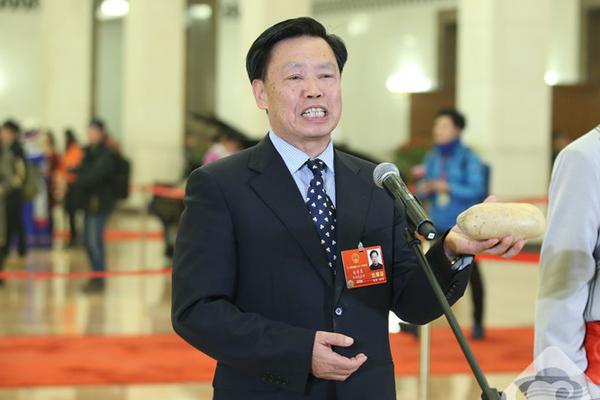
Short-term memory, long-term memory. Cognitive psychology regards memory as the process of coding, storing and extracting input information by the human brain. Memory is divided into three systems: instantaneous memory, short-term memory and long-term memory, which is based on the different ways of encoding, storing and extracting information, as well as the different length of information storage time.
What are the three memory systems: memory is also regarded as the process of the human brain encoding, storing and extracting input information, and according to the different ways of coding, storing and extracting information, as well as the different length of information storage time, memory is divided into instantaneous memory, short-term memory and long-term memory. A system.
What are the three memory systems? According to the different ways of encoding, storing and extracting information, and the different length of information storage time, memory is divided into three systems: instantaneous memory, short-term memory and long-term memory.
The three stages of memory are sensory memory, short-term memory and long-term memory. Sensory memory: Sensory memory refers to the information we receive through various sensory organs, such as vision, hearing, touch, taste and smell.
What are the three memory systems? According to the different ways of coding, storage and extraction of information, and the different length of information storage time, memory is divided into instantaneous memory, short-term memory and long-term memory. Remember the three systems.
The coding method of instantaneous memory, that is, the way instantaneous memory remembers information, is the image of external stimuli. Because the information of instantaneous memory is first registered in the sensory channel in the form of sensory images, instantaneous memory has a distinct image. The capacity of instantaneous memory is large, but the retention time is very short.
Perception is the cognitive process of giving meaning through information. ( 2) Working memory. It is the memory of processing and encoding information in the human brain within a minute. The holding time is about 5 seconds to 1 minute. Short-term memory also includes direct memory and working memory.

Weber's score), which is only applicable to medium-intensity stimuli, which is different from the Weber's score of sensory organs (2) Fechner's Law: 1860, using the differential threshold as the unit of sensation, a stimulus was measured. The difference threshold contained is believed to be the psychological intensity caused by this stimulus.
The concept of memory is the psychological process of accumulating, preserving and extracting individual experience in the mind.From storing into the brain to extracting and applying again, this complete process is collectively called memory.
Long-term memory refers to the memory maintained for more than a minute after external stimuli appear in a very short time. Features: The capacity of memory is unlimited, whether it is the type or quantity of information. Coding Semantic coding: Use words to process information and organize coding according to the meaning of the material.
Memory and memory process Definition: It is the reaction of past experience in the mind. Past experience refers to the perception of things, thinking about problems, the emotional experience caused by things, and the actions that have been carried out in the past. Function: It is the root of wisdom and the cornerstone of psychological development.
Casino Plus login register-APP, download it now, new users will receive a novice gift pack.
Short-term memory, long-term memory. Cognitive psychology regards memory as the process of coding, storing and extracting input information by the human brain. Memory is divided into three systems: instantaneous memory, short-term memory and long-term memory, which is based on the different ways of encoding, storing and extracting information, as well as the different length of information storage time.
What are the three memory systems: memory is also regarded as the process of the human brain encoding, storing and extracting input information, and according to the different ways of coding, storing and extracting information, as well as the different length of information storage time, memory is divided into instantaneous memory, short-term memory and long-term memory. A system.
What are the three memory systems? According to the different ways of encoding, storing and extracting information, and the different length of information storage time, memory is divided into three systems: instantaneous memory, short-term memory and long-term memory.
The three stages of memory are sensory memory, short-term memory and long-term memory. Sensory memory: Sensory memory refers to the information we receive through various sensory organs, such as vision, hearing, touch, taste and smell.
What are the three memory systems? According to the different ways of coding, storage and extraction of information, and the different length of information storage time, memory is divided into instantaneous memory, short-term memory and long-term memory. Remember the three systems.
The coding method of instantaneous memory, that is, the way instantaneous memory remembers information, is the image of external stimuli. Because the information of instantaneous memory is first registered in the sensory channel in the form of sensory images, instantaneous memory has a distinct image. The capacity of instantaneous memory is large, but the retention time is very short.
Perception is the cognitive process of giving meaning through information. ( 2) Working memory. It is the memory of processing and encoding information in the human brain within a minute. The holding time is about 5 seconds to 1 minute. Short-term memory also includes direct memory and working memory.

Weber's score), which is only applicable to medium-intensity stimuli, which is different from the Weber's score of sensory organs (2) Fechner's Law: 1860, using the differential threshold as the unit of sensation, a stimulus was measured. The difference threshold contained is believed to be the psychological intensity caused by this stimulus.
The concept of memory is the psychological process of accumulating, preserving and extracting individual experience in the mind.From storing into the brain to extracting and applying again, this complete process is collectively called memory.
Long-term memory refers to the memory maintained for more than a minute after external stimuli appear in a very short time. Features: The capacity of memory is unlimited, whether it is the type or quantity of information. Coding Semantic coding: Use words to process information and organize coding according to the meaning of the material.
Memory and memory process Definition: It is the reaction of past experience in the mind. Past experience refers to the perception of things, thinking about problems, the emotional experience caused by things, and the actions that have been carried out in the past. Function: It is the root of wisdom and the cornerstone of psychological development.
Free sports events uefa champions league app android
author: 2025-01-11 07:46Hearthstone Arena class tier list 2024
author: 2025-01-11 06:35 European Cup live
European Cup live
537.38MB
Check UEFA Europa League
UEFA Europa League
116.42MB
Check UEFA European championship
UEFA European championship
625.62MB
Check UEFA Champions League live streaming free
UEFA Champions League live streaming free
881.55MB
Check Hearthstone arena
Hearthstone arena
184.45MB
Check Casino free 100 no deposit
Casino free 100 no deposit
823.45MB
Check Casino Plus
Casino Plus
112.91MB
Check UEFA Champions League live streaming free
UEFA Champions League live streaming free
183.67MB
Check Casino Plus login register
Casino Plus login register
954.21MB
Check UEFA Europa League
UEFA Europa League
131.55MB
Check Hearthstone Arena class tier list 2024
Hearthstone Arena class tier list 2024
967.57MB
Check Hearthstone Arena win rate
Hearthstone Arena win rate
982.16MB
Check UEFA Champions League live streaming free
UEFA Champions League live streaming free
654.15MB
Check UEFA Champions League live streaming free
UEFA Champions League live streaming free
626.21MB
Check Casino redeem
Casino redeem
725.94MB
Check Champions League
Champions League
938.38MB
Check Champions League
Champions League
838.21MB
Check Hearthstone arena deck Builder
Hearthstone arena deck Builder
239.24MB
Check Casino free 100 no deposit
Casino free 100 no deposit
232.75MB
Check DigiPlus Philippine
DigiPlus Philippine
376.59MB
Check DigiPlus Philippine
DigiPlus Philippine
885.25MB
Check UEFA Champions League standings
UEFA Champions League standings
651.77MB
Check UEFA Champions League live
UEFA Champions League live
319.82MB
Check UEFA Champions League live streaming free
UEFA Champions League live streaming free
375.23MB
Check UEFA live free
UEFA live free
628.36MB
Check UEFA live free
UEFA live free
348.36MB
Check Hearthstone Arena Tier List
Hearthstone Arena Tier List
539.34MB
Check Hearthstone Arena class tier list 2024
Hearthstone Arena class tier list 2024
193.48MB
Check Hearthstone Arena Tier List
Hearthstone Arena Tier List
974.54MB
Check Casino Plus free 100
Casino Plus free 100
174.34MB
Check bingo plus update today
bingo plus update today
656.95MB
Check Hearthstone Arena class tier list 2024
Hearthstone Arena class tier list 2024
488.43MB
Check UEFA Champions League standings
UEFA Champions League standings
788.62MB
Check TNT Sports
TNT Sports
419.45MB
Check Free sports events uefa champions league app android
Free sports events uefa champions league app android
878.81MB
Check Bingo Plus
Bingo Plus
398.63MB
Check
Scan to install
Casino Plus login register to discover more
Netizen comments More
1016 DigiPlus Philippine
2025-01-11 07:41 recommend
364 DigiPlus
2025-01-11 07:08 recommend
2494 Casino Plus GCash login
2025-01-11 06:31 recommend
2893 UEFA Champions League
2025-01-11 06:31 recommend
2694 UEFA Champions League standings
2025-01-11 05:51 recommend